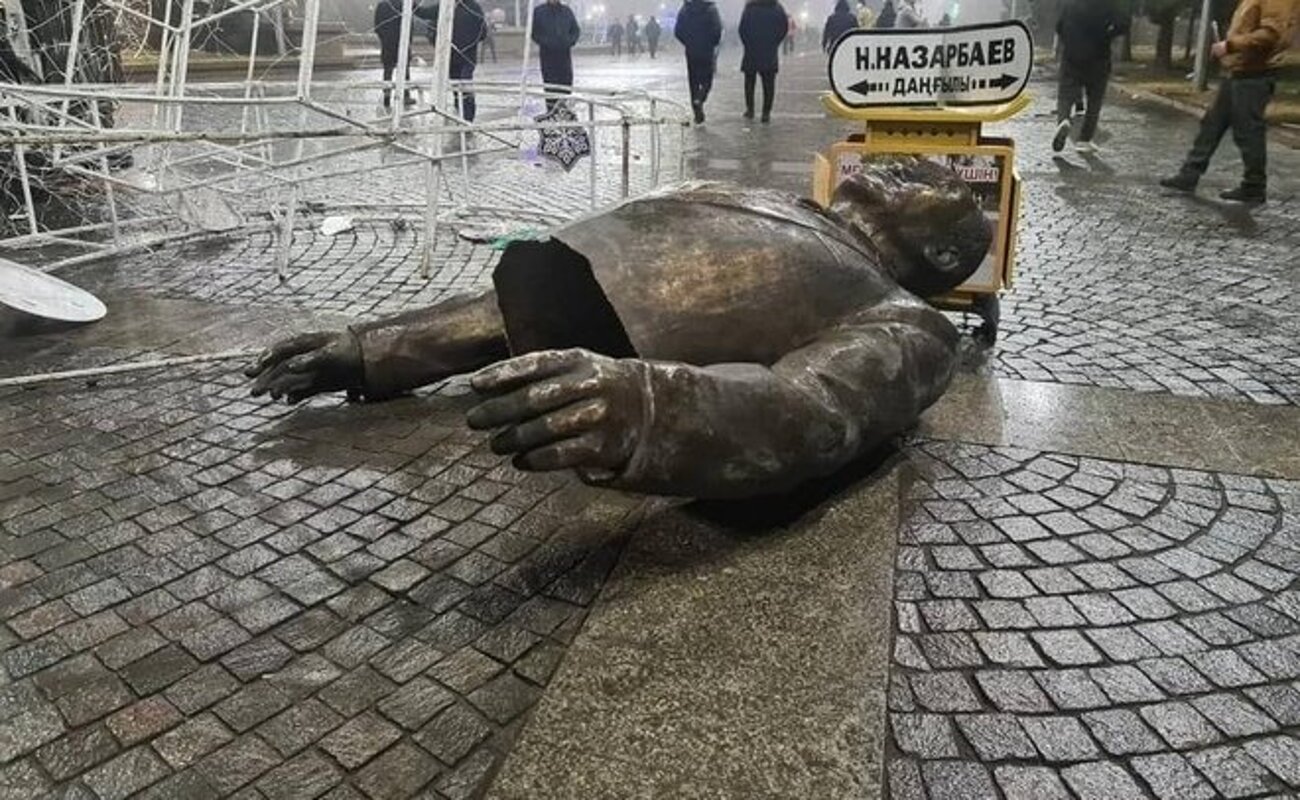
The End of Nazarbayev’s Cult of Personality in Kazakhstan
Most of those who support this initiative were once among the leading figures praising the president.
The Day of the First President of Kazakhstan will no longer exist. This holiday, celebrated annually on December 1, was first observed in 2011 because on this day in 1991, Nursultan Nazarbayev was elected president of Kazakhstan with 99 percent of the votes.
The creation of this holiday was part of the process of dismantling the cult of personality around Nazarbayev, whom the state propaganda machine depicted as the next Kemal Atatürk or George Washington. Since the bloody protests in January this year, the star of the former leader, who resigned in 2019 but remained a key figure behind the scenes of power, has been fading.
On September 7, confirming this new course, lawmakers in the lower house of parliament voted in favor of abolishing the Day of the First President in Kazakhstan. Senators must also give their opinion on this matter, but that is merely a formality. From now on, December 1 will be an ordinary working day.
On the same day, parliamentarians also raised the issue of reinstating Republic Day, which was celebrated on October 25 until 2009. The country’s Independence Day, celebrated on December 16, will also continue to be observed. President Tokayev supports this idea, stating that this latter holiday could serve as a day of remembrance for "national heroes who made significant contributions to independence." Tokayev specifically referred to the young protesters who were killed in Almaty in 1986 during anti-Soviet demonstrations.
The cancellation of the holiday related to Nazarbayev, among other issues, demonstrates how flexible current lawmakers can be. Many of those who voted to abolish the Day of the President were previously among the most fervent sycophants of the former leader, especially before the events of January. Tokayev, one of the key figures in this process, is no exception. For example, shortly after coming to power in the spring of 2019, he proposed renaming Astana after his mentor, Nursultan Nazarbayev. This caused outrage and anger, but the proposal was implemented.
The group of lawmakers, calling themselves "New Kazakhstan" and established in support of Tokayev’s reforms, proposed last week to restore the previous name of Astana.
“We consider it inappropriate to name the city after a person who is still alive,” said group representative Yelid Zhanbershin on September 2. “Moreover, society has not accepted the new name of the capital. Therefore, restoring the name Astana will be an act of historical justice.”
In another move, Tokayev showed his intention to distance himself from his mentor. To this end, he announced early presidential elections for this fall. This move suggests that he has now consolidated his position to the point where he no longer needs Nazarbayev's support.
In a televised address on September 1, Tokayev proposed extending the presidential term from five to seven years but making it a single term. He described this proposal as "reducing the risk of monopolizing power." However, critics view this proposal with skepticism.
“Take off your rose-colored glasses,” says human rights activist Sergey Duvanov in an interview with *Eurasianet*. "Tokayev and his administration were involved in creating the current authoritarian system, so they won’t implement liberal reforms. Therefore, despite the slogans, we continue to live in the old Nazarbayev-era Kazakhstan," he added.
Source: "Eurasianet", (Foto by rambler.ru)



